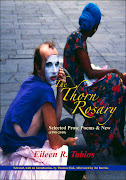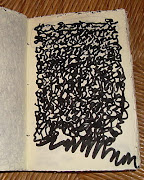But we do know that indigenous values, whether or not they are labeled as such (and that’s what’s so great about these books I’m reading—the ability to name things because people have chosen to write theories), do work even in a modern context. Intuition, for instance, is closely-aligned with the ability to conceptualize/create versus simply follow orders and rules—which is more likely to create or expand a new company?
And politics. Remember the first People Power’s Revolution in the Philippines that overthrew the Marcos dictatorship and went on to inspire other such people power’s movements in other countries? That act succeeded because of the indigenous value of pakikibaka, or together-as-one. (I remember my young self as a Barnard College student doing a political science thesis on the Philippines--and how in that thesis I had expressed doubt over that country's Communist effort as so much of that seemed more rooted in poverty and political corruption, versus a belief in Marxism. As recently as last year, in response to political corruption in the Philippines, a despairing Fil-Am writer expressed his concern that It may have to take a (violent) revolution after all to resolve things. I remember my empathy for this writer's frustrated assessment, but it occurs to me now that political movements based on Kapwa and pakikibaka have more of a chance at success than the exported Communism.)
The ability to tap into community and have a larger desire create something is a very effective force. My very first book was BLACK LIGHTNING.One of its facets was that it was a book desired by the reading community, versus a book I concocted *in my own room* and then attempted to pitch to publishers. BLACK LIGHTNING was a huge success—and I talk more about this in the Introduction to a special issue on Poet-Editors that will be published by Otoliths (I’ll update link when the issue goes live later this week).
And if I look at everything I’ve done so far as a poet—a modest career as a writer for only encompassing 14 years so far—I’ve been prolifically published. To be a prolific writer is one thing, but the publication of one’s writings is a different step. Sure, I could say I’ve found many publishers because I’m a good writer—but many good writings are overlooked. My secret is Kapwa, its practice long before I knew its word: I can trace every writerly achievement to the root source of me having first tried to do something else on behalf of others. That’s the melding of Kapwa and Bahala Na—you live in the indigenous spirit without looking for rewards and yet the rewards come in terms of you thriving as a person and, in my case, poet. And I’ve done this without donning ethnic garb (unless Halloween counts) .
But let me digress to mention a baby elephant in the room (Hello Elephant!). When we start discoursing on the indigenous, people and concepts that may seem “flakey” come out of the woodwork. Whatever, you know. I’m not going to diss someone for wearing symbols—we have to wear something and I’m not going to say my German Shepherd pendant is less flakey than the silver bracelet etched with Baybayin (btw, I love my Babaylan jewelry). But we need to not judge the indigenization movement based on these trappings. The flakes that should be dismissed are those forcing themselves into an indigenizing community as a leader of sorts—someone to be followed. I’ve been contacted now by people trying to claim me as their own in exchange for presumably some spiritual revelation….Look, if you’re a leader, you don’t have to try hard to find followers, you know what I mean? If you have something relevant to say, the community will recognize you. Until then, try to manifest your interest in indigenous values in ways other than a power play, okay?
Effectiveness. How to assess said effectiveness? Look at the results. Is there something coming into existence—for the good of community/world—as a result of the results? Is there something being created versus a movement-for-the-sake-of-having a movement; is there something going on besides the creation of navel-gazing or socializing groupings? Was a book created that ended up empowering some of its readers? Was a dictator overthrown? Was a new company hatched? Did an environmental movement to green the world unfold? Et al...
The indigenous spirit is like poetry (which is why I say poetry has provided me good training): words can’t fully capture the indigenous spirit because one has to live it, not talk it.
*****
Community and activism are forces that can create new lovely poems, especially if one is willing to abide by Bahala na (note that this Indigenous value has been debased into it being interpreted as passivity, when its true nature is one of courage—courage in the face of not knowing what will happen. I often write poems, not to say something but to discover what needs to be said).
In earlier essays and talks, I’ve raised my belief that Poetry is a Doorway Into Something. I’d like to share two examples, for which new poems were created by myself and other poets in order for these projects’ successes. Both of these projects were effective in actually raising money (I’s got the beef, son!) for poverty relief and Haiti relief. These are—
"Hay(na)ku for Haiti" relief, about which information is available HERE.
"Tiny Poetry Books Feeding The World...Literally!", about which information is available HERE
These projects involve community, involve the indigenous notion of Kusang Loob (volunteerism), bowed to respecting/preserving nature (and core to indigeneity is a tie with nature), among other things, as well as created new poems. I hope you will check out the links…and even participate!



8 comments:
Eileen, you never cease to inspire me with your work and with your blog. Thank you for writing this.
"bahala na." That term haunts me with both its "passive" view ("come what may"), a ghost-vessel filled with the projections of the other, and with its active side (courage in the face of the unknown), a dark energy that has propelled me for many years, decades, even -- to move forward through and via my senses like someone blindfolded, yet always moving toward something...
salamat my friend...
Hi Rochita,
Glad to see the Netherlands arrive here...! Thanks for your kind comments. What a lovely photo of you and child!
xo,
Eileen
Hi Jean/Okir,
Huy--I saw your comment on Facebook. Sure I drink coffee, but you know it's also about tapuy (that'd be consistent with my earlier blog entitled "Wine Poetics", right...? :-)
But wait -- as regards "bahala na". It's my understanding that the term was debased from its original definitions (courage) when it came to be associated with passivity.
That the term is not passivity (or laziness, another misinterpretation) so much as it is about understanding that life is not always under one's control AND that nonetheless one continues to act.
What might be seen as passivity or laziness is often just the person taking one's time trying to understand a situation; here's an excerpt from Katrin de Guia'd Kapwa book, quoting Lagmay:
"Bahala na, in the original interpretation, invokes the creative principle in man. It is a strength that helps to connect to the 'deep source in man" where the solutions can be discovered that lay latent in every challenge. The security based on bahala na is essentially different from the static security of the sigurista, a person who always makes sure that everything is under control. Lagmay traced the dividing line between a people who love to follow guidelines and others who prefer to walk out on a limb: 'We plan everything to the minutest detail and act according to the blueprint of fixed specifications. This is what the administration wants. It is in contrast to the attitude of someone who does not know what will possibly happen, someone who cannot tell what the future will bring. For such a person, the needed information will arrive at its own time and only when necessary,'he said.
"This statement touches on the subtleties of social engineering. Individuals who are boxed in by fixed norms ... will toe the line as long as nothing impinges on their comfort zones. Not so for people who are nomads by nature like food gatherers, fishermen or culture-bearer artists. Every day, they go about feeling their way through the complexities of random living. No maps and no blueprints, they follow their intuitions and their senses. While assessing a new situation, they may go with the flow. But when they have it all figured out, expect them to act candidly!"
+++
If what Katrin says above is true, then Bahala na is just more intuitive ... and willing to take time for intuition to blossom into a decision. That intuitiveness is different from passivitiy, though I can imagine impatient people being quick to use the mislabeling...?
As your own ravishing work reveals, there's no preordained maps to poetry and art!
Cheers,
Eileen
Eileen,
Ah, tapuy -- gimme some of that!
I agree with you completely that the "passive/lazy/irresponsible" definition of "bahala na" is a debasement. When I wrote "a ghost-vessel filled with the projections of the other," the "other" I refer to are the colonizers, who have viewed us in terms of their colonized projection -- as open-ended irresponsible beings in need of "closure" or categorization (or mapping!).
This reminds me -- when I was doing my talk on Buddhism/Babaylan, one of my questions was whether or not there should be a "blueprint" for "protecting" such values. Now I realize that if you use your senses -- common sense as well as intuitive sense pakiramdam and kapwa (shared sense of self) you will have gone a long way toward knowing how to do the right thing.
Yes, Jean...heartily agree on using senses.
But you know how the gaze affects what is seen? Similarly, I'm discombobulated in the theorizing/writing about what I've done because the process (including its heightening consciousness) of that no doubt will affect what I do in the future. In terms of IKSP, what I've done to date was purely sensing...but what I do in the future surely must have that extra layer related to theory's gaze-ing at it?
Questions like these are why I prefer to graze than gaze. Time for some bibingka that I successfully pressed Mom to make!
cheers,
Eileen
If I understand you correctly -- Is there a value to the critical position or gaze that you want to keep? To be both internal (within the community) and external? I think there's nothing wrong with stepping back once in awhile, to see where you've been, and where you are going...
Making that theorizing more participatory? But aren't you doing that already?
Huh--I guess I am, Jean :-)
I blog, ergo We are.
Post a Comment